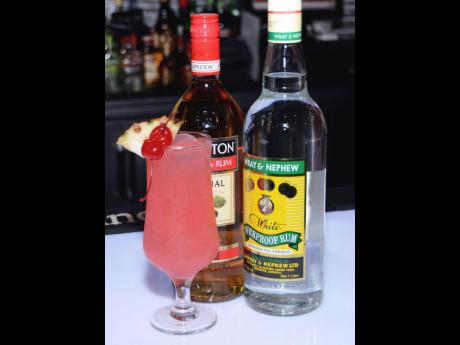Wray & Nephew seeks recycling partner
J. Wray & Nephew Limited, JWN, wants to outsource the recycling of the millions of glass bottles used to distribute its rums and other alcoholic spirits locally.
But the spirits company says that it hasn't made much headway on that goal as the current infrastructure around recycling in Jamaica is inadequate to sustain the venture.
JWN already accepts bottle returns from customers, including stock deemed obsolete.
"We are hopeful that in the future, we will be able to expand this programme and have already explored logistics for bottle returns," said JWN Managing Director Jean-Philippe Beyer.
"Currently, we have a programme to compact glass, cardboard, metals, and plastic generated from our internal operations," he said.
The Financial Gleaner sought to determine whether the company, which uses glass bottles for many of its products and which has invested millions of dollars in facilities to recycle some of its production waste, has plans to put in place a bottle return or other recycling system.
"Regrettably, the infrastructure and third-party support required to sustain this venture remains inadequate. We continue to review this area and hope we will be able to make an announcement on a partnership for recycling in the future," said the spirits executive.
The Spanish Town Road, Kingston-based plant has 97 stock units and distributed about 20 million bottles locally last year.
In emailed responses, Beyer said that in 2017, JWN announced the culmination of over US$6 million in three environmental projects at its Spanish Town Road plant a wastewater treatment plant, a solid waste recycling facility, and a photovoltaic system
"These innovative solutions are 'best in class' by global standards and in combination, a first for Jamaica. The investment signalled JWN's commitment to reducing its environmental impact and being good corporate citizens," he said.
But Beyer also said that putting in place a proper recycling system capable of handling the volumes of bottles and other materials utilised by JWN was not only costly, but could serve to split the company's focus.
"We have spent decades developing our expertise and credentials in the spirits industry and are renowned producers of the finest rums and spirits in the world, with a very complex supply chain that begins with our farming operations, culminating in worldwide distribution," said Beyer. "As you can appreciate, to add to this complexity could cause the focus to be diluted and would not necessarily realise the desired benefits. As such, expertise in this area would have to be outsourced," he said of the recycling efforts.
But finding a suitable local partner for the recycling job has proved difficult, "as unfortunately, this is an industry not well developed in Jamaica, but we remain receptive to collaboration," the JWN executive said.
The situation has created another headache for the company, whose branded glass bottles are being used for the illicit distribution of spirits.
Beyer described the scale of the illegal activity as "minuscule" but said that JWN was working with the police's Counter-Terrorism and Organised Crime unit, known as C-TOC, to stem the practice.
"We have and continue to encourage our stakeholders not to support the illicit trade by selling the empty bottles and fitments to the counterfeiters or buying counterfeit products and have advised consumers to look for our tamper-evident seals and other identifiers when making purchases," he said.
Asked whether JWN was concerned that without a bottle-return system a large proportion of the glass bottles could end up as waste that impacts the environment in the same way as plastic bottles now do, Beyer said that "as a company that is ISO 14001:2015, we are very concerned and are currently investigating the most effective method of controlling this issue".
"We are also mindful that the issue of waste management is one that needs to be tackled holistically at the highest level of the government with guidelines and regulations," he added.
In other countries, recycling programmes emanated from the leadership of the government on the framework and funding structure, which lays the groundwork for industry leaders to participate in recycling programmes, he said.
Beyer said that a properly constituted recycling process involves the collection, sorting, sanitation and generation of scrap at each stage, which has to be converted to cullet.
"This is quite involved and not as straightforward as collecting, washing, and reusing," he said. "At each stage, there must be quality control mechanisms and a further inspection and sorting ... . This is quite involved and requires further investment and expertise. This is an area that we would outsource so as to be able to fully concentrate on our core business," the JWN managing director said.


